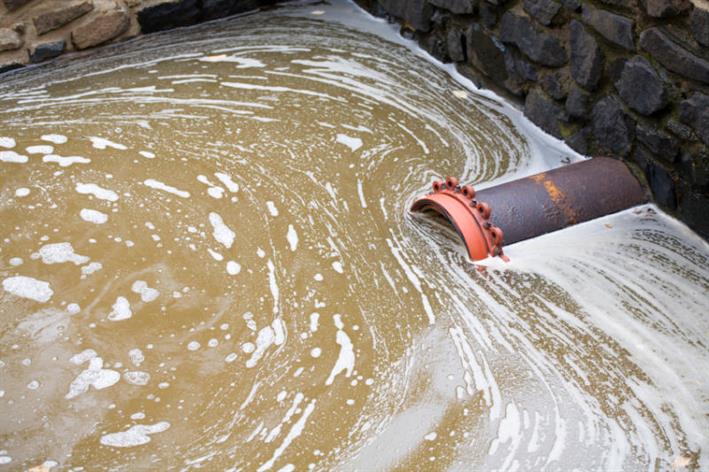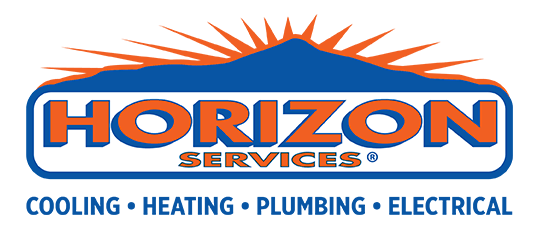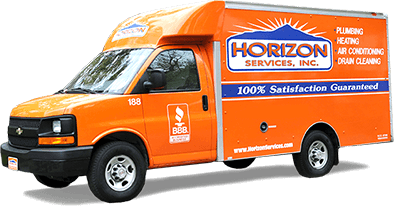
A Little Insurance and Preventive Action Offer a Lot of Protection Against Sewer Related Damage
If you’re a homeowner, here’s one of the worst nightmares you can experience. Torrential downpours deluge your property and neighborhood with rainwater, overwhelming your home’s sewer system or your sump pump’s ability to handle the water runoff. The next thing you know, you have raw sewage backing up into your home’s drains, overflowing toilets and tubs or flooding your basement. A backed up sewer can do a real number on your home, causing thousands of dollars in damage to floors, walls, furniture carpeting and electrical systems, as well as pose a major health hazard.
No problem. You’ve got insurance, right? Not so fast. According to the Insurance Information Institute, most sewer system backups are not covered under a typical homeowners insurance policy, nor are they covered by flood insurance.
Uh-oh.
For homes that have been severely damaged by sewer backups and are uninhabitable, your basic homeowners policy may include Loss of Usecoverage, which provides reimbursement for lodging, food and other living expenses you may incur if you have to vacate your home. Loss of Use coverage also reimburses you for the lost rental income if you rent out part of the house. but that’s about all you’re going to get with your average homeowner’s policy.
For most consumers, coverage for sewer-related problems must be purchased either as a separate product or as an addition to a homeowners policy. Fortunately, sewer backup coverage is available from most insurance companies for a nominal cost. The sewer and drain professionals at Horizon Services recommend that most consumers in our rain-prone region of Delaware, Pennsylvania and Maryland err on the side of caution and purchase this additional insurance. You can typically purchase sewer backup insurance for an additional premium of $40-$50 per year; a small price to pay for significant piece of mind and protection. If you live in a flood plain or near a river or stream, you may be required to carry flood insurance, as well.
What Causes Sewer Backups
Most homeowners probably don’t realize that they are responsible for the maintenance and repair of their main sewer line — the pipeline that runs between their house and the municipality’s sewer main, usually located underneath the street. The main sewer line is owned and maintained by the property owner, including any part of the line that extends into the street or public right of way.
Over time, these main sewer lines can easily deteriorate, crack, collapse or become obstructed. You may not have a clue that this kind of damage is occurring. But one severe rainstorm may be all it takes to bring the problem to a head.
Some of the more common causes of damaged sewer lines and sewer line backups are:
- Aging Sewer Systems: More than half of nation’s sewer lines are 30+ years old or connected to aging municipal sewage systems. After decades of wear, tear and obstruction, the sewer line and system no longer have the capability to withstand heavy demands and so they back up and overflow.
- Combined Pipelines: Some newer sewage and drainage systems combine storm water and raw sewage into the same pipeline. During intense rain storms, these combined systems are exposed to more volume and debris than they can handle. With nowhere else to go, the outgoing water and sewer backs up into basements and other low lying drains.
- Tree Root Infiltration: Shrubs and trees seeking moisture can make their way into cracks or through joints in your sewer line, causing extensive blockage and damage. Tree roots can travel a long way; the damage may occur from a tree on your property, a neighbor’s tree or a tree on public property. Samples of the tree roots can be obtained to identify which party is responsible for cleanup and repair.
- Blocked Municipal Lines: Many times the problem has nothing to do with your property, but with a blockage in a your municipality’s sanitary main running under your street. If the blockage is not detected in time, sewage from the main can back up not only into your home but your neighbors, as well.
Usually this kind of backup happens slowly, giving you plenty of time to call a licensed plumbing, drain and sewer company like Horizon Services. If water and sewage back into your basement at a rapid rate, don’t delay; call your municipality’s public works office or sewer department and report the problem immediately.
How You Can Prevent Sewer Line Backups
There are several preventive measures homeowners can take to minimize the occurrence sewer line backups.
- Proper Disposal of Grease and Food: Grease, fats, gravies, sauces and cooking oils should never go down your kitchen drain but should be poured into a heat-resistant container and disposed of in the garbage. Once in your drain, these substances will cool off and solidify either in the drain or in the main sewer, eventually building up to a massive clog. Food particles should never go down the drain unless run through a garbage disposal first.
- Proper Disposal of Paper Products Properly: Toilet paper and human waste is the only thing that should go down your toilet. Diapers, paper towels, feminine products and food should never be flushed; these products do not deteriorate and can easily clog your main sewer line. Even facial tissue should be avoided; it does not dissolve as easily as bathroom tissue does.
- Replace Your Pipes: One way to prevent collapsed sewer lines or tree root infiltration is to replace your old clay or metal sewer lines with today’s newer plastic or PVC pipe. If you have continuing problems with tree roots in your sewer line, you may have to have the roots cut or your line cleared periodically.
- Install a Backwater Prevention Valve: These fixtures are installed into a sewer line in the basement of your home to prevent sewer backups. They allow sewage to go out, but not to come back in.
What to Do If You Experience a Sewer Backup
Sewer backups can produce a host of nightmares for homeowners, including disease, mold formation, destruction of valuables, foundation damage and electrical malfunctions. Prompt cleanup is necessary to restore sanitary conditions and prevent further damage. If you experience a sewer backup situation, at a minimum, your cleanup should include:
- Wet-vacuuming of all floodwater
- Mopping floors and wiping walls with soap, water and disinfectant
- Flushing and disinfecting plumbing fixtures
- Steam cleaning or removing wet carpets or drapes
- Repairing/removing damaged wall and floor covering
- Cleanup of ductwork
How to File a Sewer Backup Claim
Contact your insurance agent as soon as possible after your sewer backup has occurred. For insurance purposes, it’s a good idea to take before and after photos of the affected areas of your home or basement and itemize any property losses. Save all receipts related to repair, cleaning or damages related to your sewer backup.
Wet, Leaky Basements are Common in Delaware, Pennsylvania and Maryland
Most basement flooding in the Horizon Services service area is not related to the problems in the sewer system. In many cases, the settling of your house or soil around you house leads to rainwater flowing toward your house and down the outside of the foundation wall. That water can then seep into your basement through small cracks in the foundation or basement slab, especially after a severe rainstorm when the ground is completely saturated. This can be alleviated by digging trenches or installing drain systems that draw water away from the house. Owners may also be able to prevent future flooding by water sealing the basement, using a sump pump or installing a French drain system. Consult a basement specialist for help with these kinds of problems.


